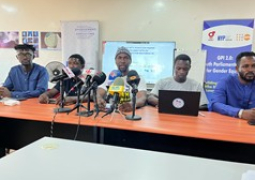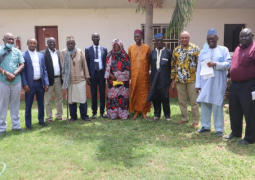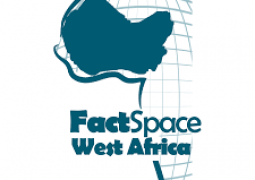“I got familiar with the financial manual just recently, and much of what I understand now is from this commission,” Jawara said.
Jawara told the commission that Kuntaur Area Council operates with only one bank account, making it the only council in the country with such a limited financial setup. This, he said, helped the council manage and track its revenues and expenditures.
When asked whether the council had taken any loans or overdrafts, Jawara confirmed they had taken a bank overdraft once, though he could not provide clear details about its terms or management.
He stated that the council had established several committees, including Finance Committee, Development Committee, and Contracts Committee.
However, when asked for formal resolutions establishing these committees, Jawara initially could not produce any, describing the omission as “an oversight”. He later claimed that a resolution did exist, prompting the lead counsel to request its immediate submission.
Jawara said the council “holds monthly meetings, and a secretary is present” to record minutes. He was asked to provide the commission with copies of meeting minutes especially those addressing audit findings.
He also stated that while the council produces end-of-year reports, these are typically discussed verbally and not formally documented.
The budget process, according to Jawara, begins with councillors submitting requests, which are then compiled by the director of administration and forwarded to the finance department. However, he was unable to explain how the council tracks the actual revenue generated each year.
He confirmed that revenue assessments were conducted annually, with finance officers writing to revenue collectors, who assessed the income potential. Yet, it remains unclear how closely the council monitors or verifies the assessments.
Significantly, Jawara revealed that procurement procedures were only properly adopted in 2022, saying that prior to that, the council was “still in a learning phase,” and many processes were not in line with legal standards.
He also said the contracts committee is responsible for awarding contracts, but could not elaborate on the specific criteria used.
When asked about governance infrastructure, Jawara admitted that during most of his tenure, there was no establishment register.
“No fixed asset register was in place. The council lacked standing orders. The IT unit was weak, and only recently introduced a policy. Only one internal auditor was serving the entire council,” he said.
He also revealed that “staff loans are currently offered”, but no formal policy existed before. Contract staff are employed, but the procedure for contract renewal was unclear, and Jawara deferred responsibility to the CEO.
Jawara confirmed that Kuntaur Area Council did not have any legal advisers, consultants, or contracted technical experts, further underlining the lack of formal structures in place.
On the issue of Salary increases, he explained they are based on central government adjustments, and not driven by internal council decisions.
He stated that the council had a strategic plan from 2018–2023, which was recently reviewed and upgraded. The council comprises 10 elected ward councillors and 3 nominated members representing women, youth, and the district chief.
Throughout the testimony, Jawara consistently deferred responsibility to other departments and admitted to relying on information from the finance team and the CEO for most operational matters.
When asked for a comprehensive list of council-funded and counterpart-funded projects, he promised to submit it later, stating the documents were kept in their respective departments.
“A lot of the information, I rely on others for it. The documents are kept in the right departments,” he explained.





